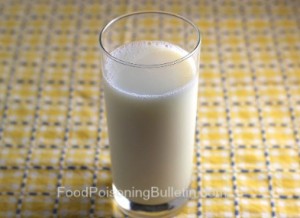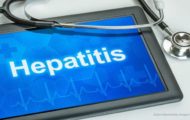A study conducted by the Department of Environmental Health Services at Johns Hopkins Bloomberg School of Public Health and Johns Hopkins Center for a Livable Future has found that the benefits of consuming raw milk do not outweigh the risks. The study was done for the Maryland General Assembly as they consider a bill to legalize the on-farm sale of unpasteurized milk in that state.
 The study, which was completed in December 2014 but just released to the public, states, “Overall, our review identified no evidence that the potential benefits of consuming raw milk outweigh the known risks.” The bill, House Bill 3 was introduced to the Maryland House of Delegates during the 2014 session.
The study, which was completed in December 2014 but just released to the public, states, “Overall, our review identified no evidence that the potential benefits of consuming raw milk outweigh the known risks.” The bill, House Bill 3 was introduced to the Maryland House of Delegates during the 2014 session.
The researchers looked at the scientific literature for studies regarding health benefits and risks of raw and pasteurized milk. More than 1,000 articles were collected for consideration. They settled on 81 articles from peer-reviewed literature. The researchers state, “Based on our findings, we discourage the consumption of raw milk. The risks of consuming raw milk instead of pasteurized milk are well established in the scientific literature, and in some cases can have severe or even fatal consequences.”
Public health concerns about raw milk began in the mid 19th century, when food borne illnesses from milk were common. Pasteurization was introduced to ensure milk safety. The interstate shipment and sale of raw milk for human consumption was banned by the FDA in 1987.
Microbial contamination is the biggest risk associated with raw milk. Pathogens commonly found in milk include Salmonella, Campylobacter, E. coli, and Listeria monocytogenes. These bacteria occur naturally in the environment.
The report also states that “it is important to emphasize the difference in consumption rates of raw and pasteurized dairy products. As only a small fraction of U.S. and European populations consume raw dairy products, the proportion of associated illnesses is considerably large. Raw milk carries a substantially larger risk of pathogenic microbial contamination and subsequent human illness, when compared to pasteurized milk.”
In addition, the researchers find that although a few studies show an association between raw milk and reduced allergies, the relationship is not causal. And changes in nutritional value due to pasteurization appear to be marginal. The report states, “from a health and safety perspective, it seems more appropriate to defer to pasteurizing milk rather than assume that the risk of microbial contamination is negligible.”
This is clear in the current Campylobacter outbreak in northern California which may be linked to raw milk from Claravale Farm. At least six people are sick with this pathogenic bacteria. Claravale was associated with another Campylobacter outbreak three years ago. And a CDC study released late last year found that raw milk outbreaks are increasing, from 30 in 2007 to 2009 to 51 in 2010 to 2012 as more states allow the sales of unpasteurized milk.




